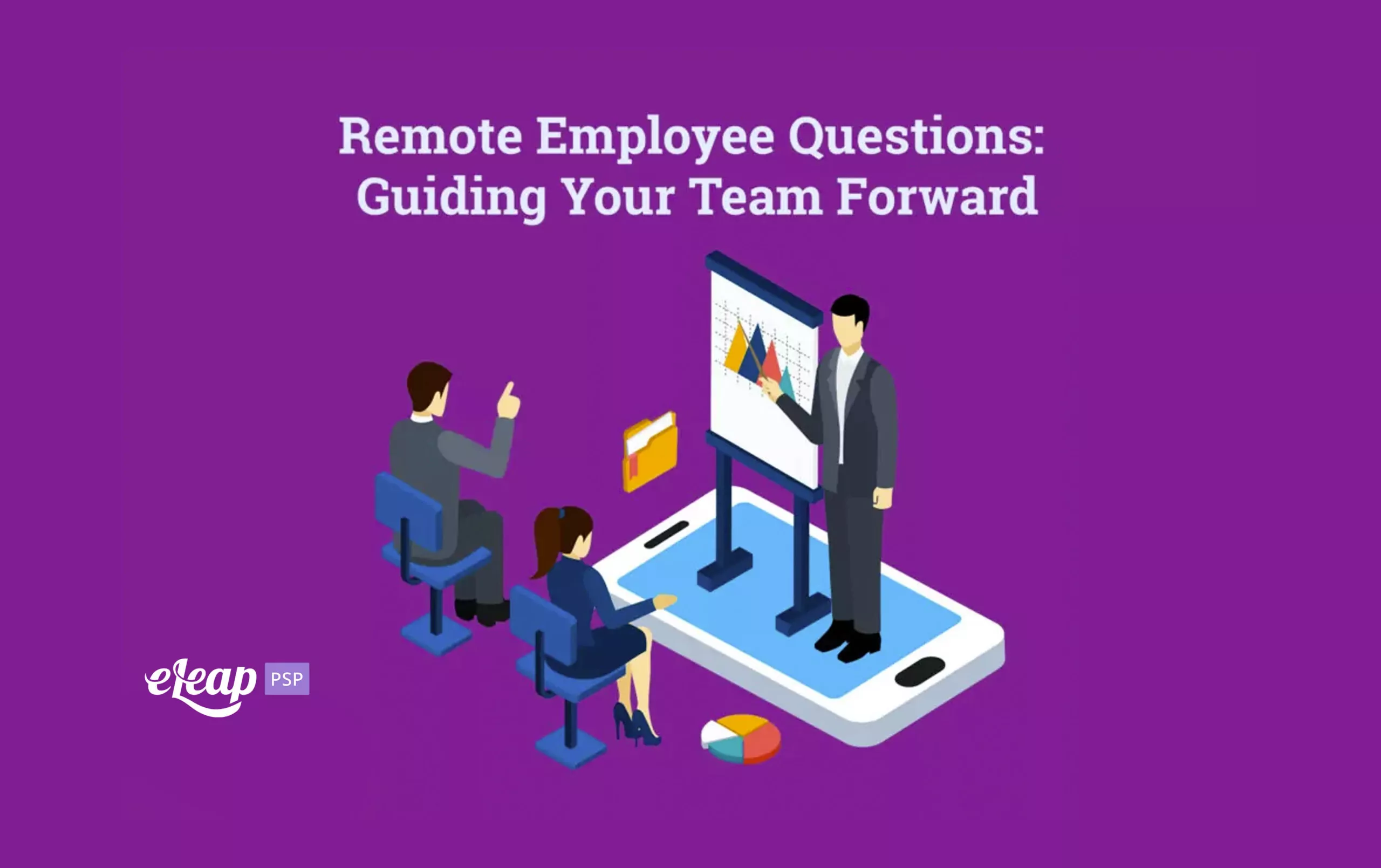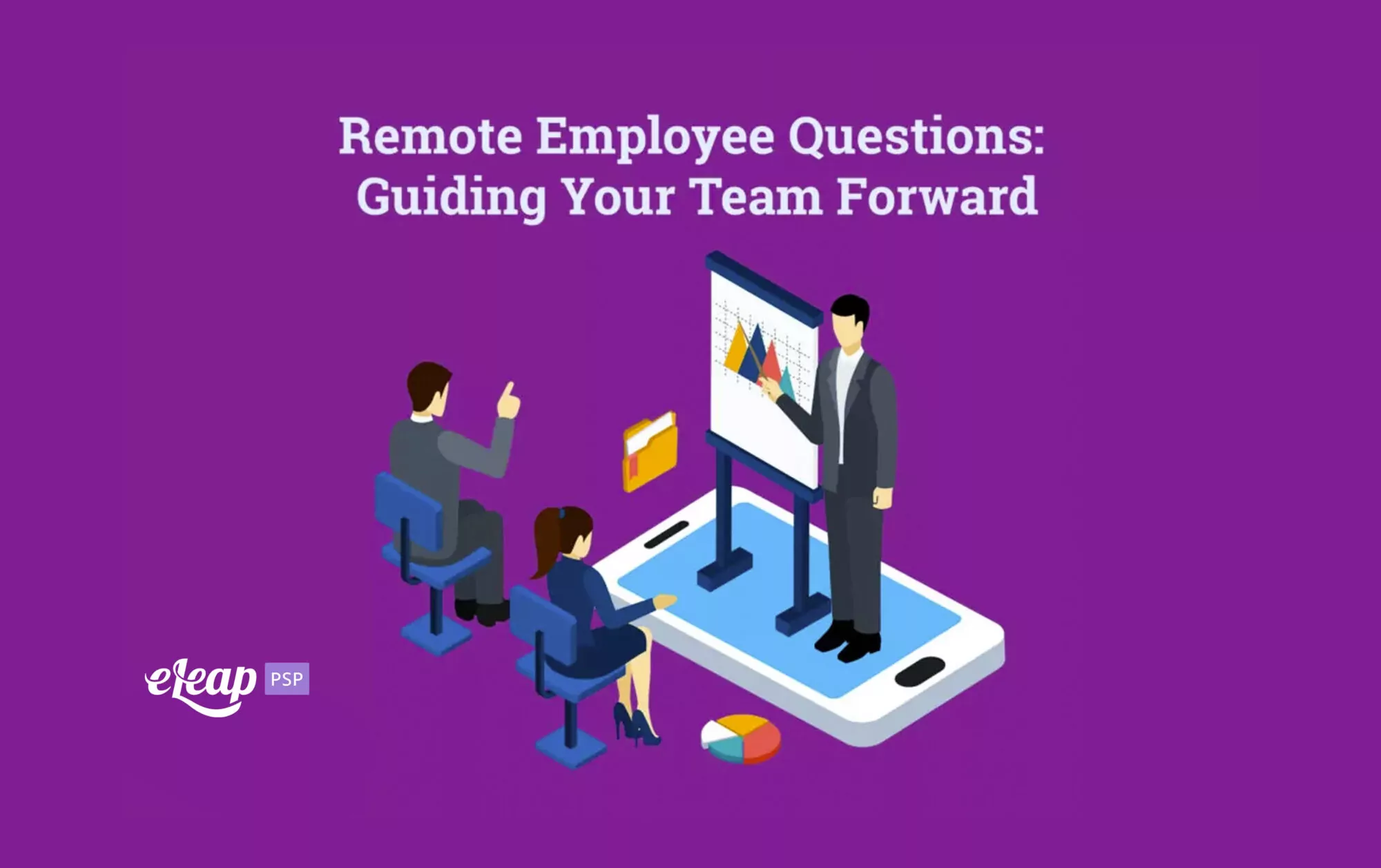Remote Employee Questions: Guiding Your Team Forward

In this brave new COVID-19-distanced world, remote work has become the norm. However, despite our familiarity with it, many people still find it challenging. Employees are struggling to feel connected with their teams or to find value in their duties. Managers are struggling to connect with employees and provide the help and guidance they need to make it through these challenging times.
There is good news. Managers can connect with their teams by asking questions and then following up. This helps to engage employees, reconnect them with their mission, and encourage success even in a socially-distanced, remote-working world.
Of course, managers need to know the right questions to ask, why they should be asking them, and what to do with the answers. We’ll explore some of the questions you need to be posing to your team members in this post.

How are you feeling? How’s your energy level?
Superficially, this is sort of a generic question, but it’s designed to unearth important insights for managers. Employee answers can help guide further questions or tell managers that some team members might need breaks or other aids to reconnect or make it through a rough patch.
Do you understand your role and what you should be working on?
When everyone works in the same space, it’s easy to get cues and direction on what we should be doing and where our efforts should be focused. In remote working situations, that can become muddied or diluted. Make sure that your team members know what they’re supposed to be doing and their responsibilities.
How’s my performance as a manager?
Ask for honest feedback from your team members on your performance. And, just as importantly, be open to the answers, even if they’re not what you expected. Ingrain that information and use it to make you better at what you do.
How are things outside of work?
Focus a little bit of energy on your employee’s personal lives. Realize that they’re multidimensional individuals, not just cardboard cutouts that do their work and then cease to objectively exist. Be human and connect with them on that level.
What are your main goals this quarter?
Performance management only works if there’s something to shoot for. Allowing team members to set some of their own goals is important because it empowers them, but it can also help in other ways. Often, employees can self-diagnose the same performance challenges that managers see and set a goal of overcoming those challenges on their own. Managers can then recognize the validity of the goal and offer help.
Do you have the tools and technology you need?
Unless your company has provided every employee with the same set of tools for remote work, check to ensure that your team has what they need. If they lack a modern laptop or PC, smartphone, or tablet, offer it to them. It’s no different than furnishing equipment and tools for in-office work. The work venue has just changed.
Do you have the autonomy you need for success?
While some employees might thrive with constant guidance and direction, most people need more control to feel fulfilled. Ask if each team member has the right degree of autonomy. If not, find areas where you can step back and give them a greater degree of control. This might require that you self-assess and identify areas where you’re prone to micromanaging so that you can provide the autonomy your team members need and deserve.
What wins did you achieve last week?
We recommend that you check in with employees at least weekly. This gives you the chance to buoy their spirits and make them feel more connected. It also allows you to celebrate their wins – but only if you ask what they achieved. What are they most proud of, no matter the scale of the achievement?
What is one skill that you would like to develop to help you now or in the future?
Performance management and learning and development are two sides of the same coin. Bring L&D into the picture by asking what your team members would like to learn and how they want to grow. Don’t stop there, though. Use that information to help create tailored career development paths that will help them grow and achieve more in their professional lives.
Do you feel like you’re collaborating well with other team members?
Remote work can create a sense of isolation. Collaboration with tools like Zoom, email, Trello, and the like can reduce these feelings while building a sense of teamwork. Ask each team member if they feel they’re collaborating enough and/or collaborating well. If yes, then that’s great. If not, drill down and find out why or what can be done to address the situation.
Do you feel like you’re taking on too much?
Being in a remote work situation can put some team members into “always-on” mode. That is, they work longer hours, do more, and expect more of themselves. Superficially, that sounds like great news for the business, but understand that it will ultimately lead to dissatisfaction and burnout. Ask your team members if they’re taking on too much, and then provide them with ways to take a step back here and there, even if that means taking some PTO.
What is your favorite thing about working remotely?
Often, the conversation’s focus is on how remote working can be improved, but that is ultimately negative. Change things up by asking your team members what their favorite thing about working remotely is. Is it the ability to wear their PJs at noon? The filters in Zoom? Find something to celebrate and be thankful for here.
Working remotely can be stressful and challenging. However, when management takes a proactive stance and commits to connecting with each employee, values real talk, and focuses on the human factor, it can be a rewarding thing that offers personal and professional benefits.